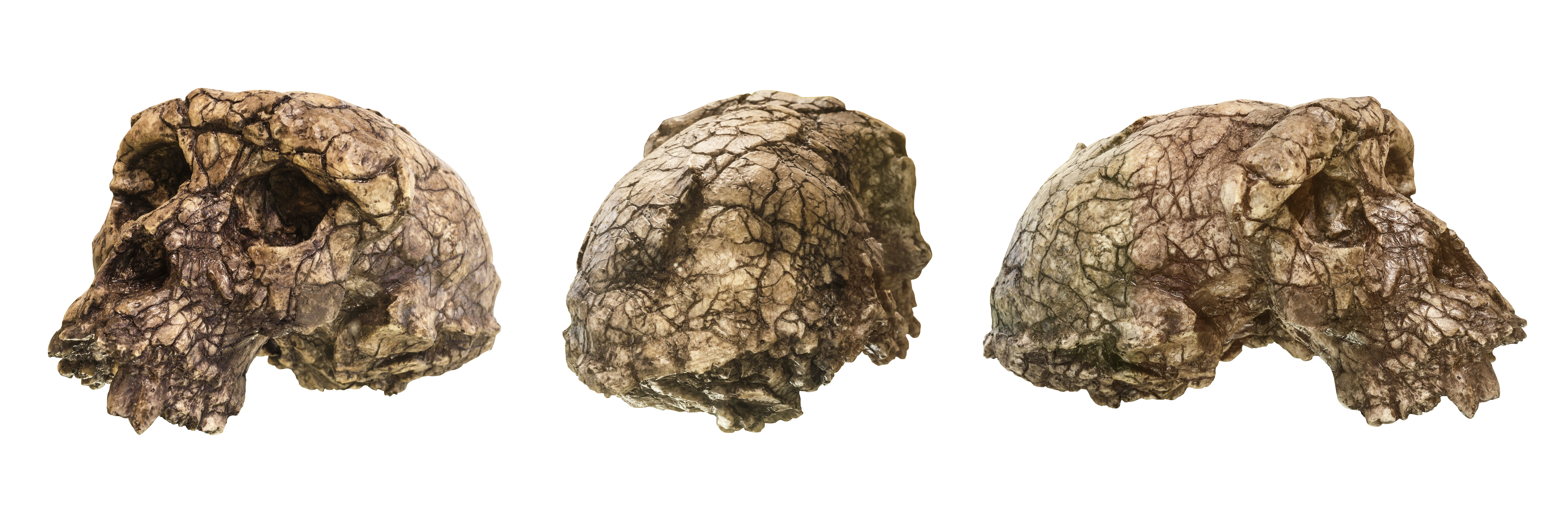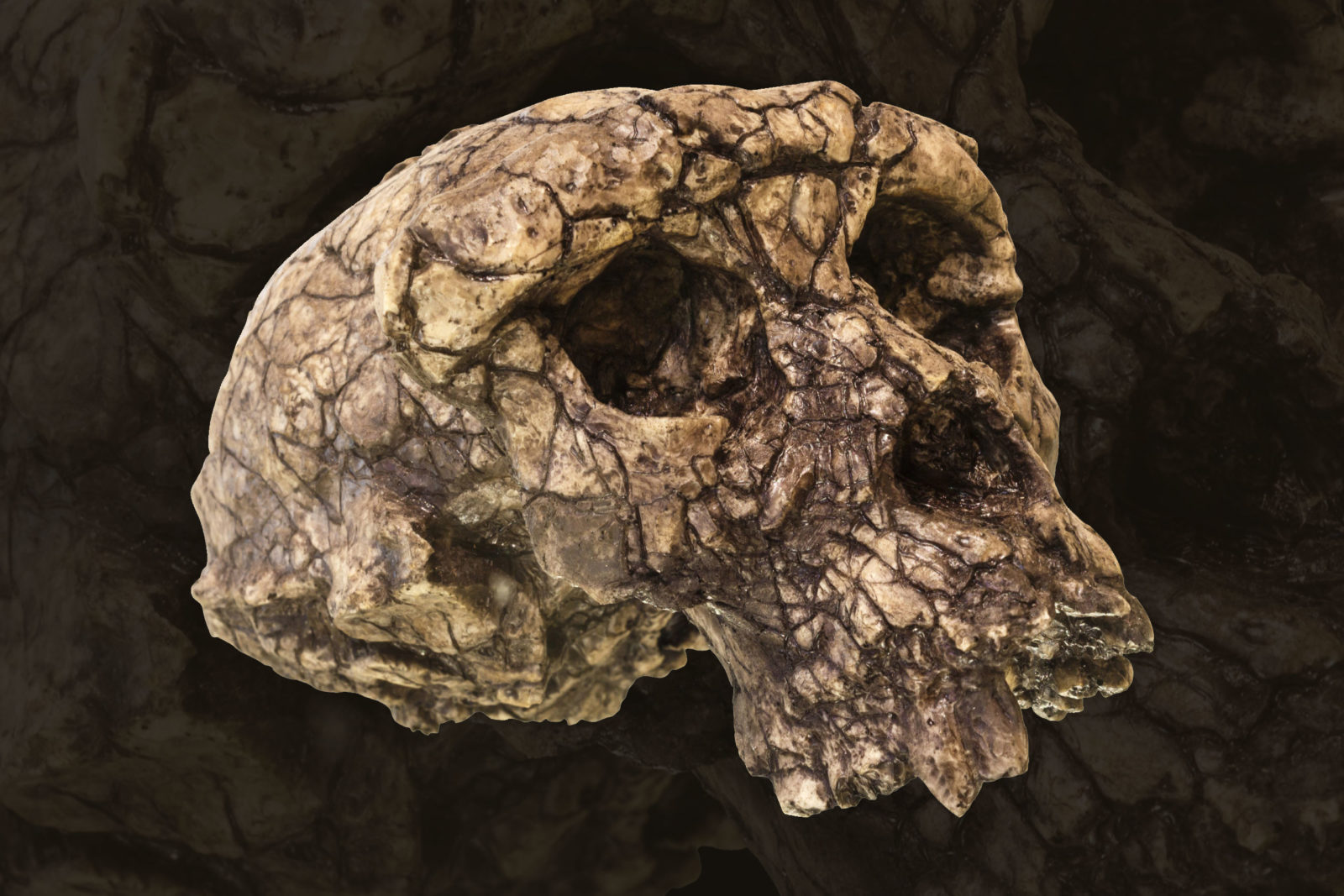Latest fossil find: no proof of ape-like ancestry, Wells says
Original at Baptist PressA chimpanzee-like skull in size and shape, a large brow akin to a gorilla and some human-like teeth — all features of the latest archaeological find, named “Toumai” — do not enhance the cause of Darwinian evolution.
Jonathan Wells, one of the leading thinkers in the intelligent design movement, remains as doubtful of evolution as ever.
“Proponents of Darwinian evolution simply ASSUME on theoretical grounds that humans evolved from ape-like creatures, then they plug fossil finds into their theoretical framework,” Wells said in comments to Baptist Press. “It is precisely the scarcity of the evidence that gets Darwinists so excited when something — anything! — turns up. The result is the exuberant hype that now accompanies Toumai.”

Toumai was heralded in the July 11 issue of the journal Nature and in an accompanying spate of news stories.
The skull and fragments comprising Toumai were unearthed by scientists led by Michel Brunet of France in a desert in Chad, a central African country.
Among the scientific community’s assessments of Toumai’s importance:
- Nature’s paleontology editor called it “arguably the most important fossil discovery in living memory.”
- Nature’s Science Update on July 11 stated that Toumai “could sink our current ideas about human evolution.”
- The New York Times stated that Toumai’s remains “suggest an evolutionary complexity and diversity in human origins that seem to defy description by the simplified family trees of the past.”
- BBC News Online stated that Toumai “puts to rest any idea [among scientists] that there might be a single ‘missing link’ between humans and chimpanzees … .”
Wells, a senior fellow at the Discovery Institute in Seattle and author of “Icons of Evolution: Why much of what we teach about evolution is wrong” (Regnery, 2000), told Baptist Press that the most important issue raised by Toumai is not whether it is the oldest such fossil on record (science methodology estimates it to be 7 million years old) nor whether ape-like creatures may have preceded humans.
“The most important issue is whether human beings originated accidentally, by an unguided natural process that did not have us in mind, or by design, through a creative act of God,” said Wells, who holds Ph.D. degrees in religious studies from Yale University and in molecular and cell biology from the University of California at Berkeley.
“If fossils cannot tell us anything reliable about ancestry and descent, much less can they tell us how any particular fossil originated. In the absence of sufficient evidence that humans originated by an unguided natural process, it is quite reasonable (indeed MORE reasonable) for Christians to affirm that human beings were created by design, in the image of God,” Wells said.
“Darwinian evolution, to a large extent, is simply applied materialistic philosophy: It assumes from the start that humans originated through purely material causes, rather than any sort of divine creation. So the grand evolutionary story of humans descending from ape-like ancestors is assumed to be a fact, and whenever meager fossil evidence turns up, it is plugged into the story wherever it seems to fit.”
In the case of this latest fossil, Wells noted that “its discoverers claim that Toumai is part of our lineage rather than the lineage of gorillas or chimpanzees. Meanwhile, we are left with NO fossils of ancient chimpanzees; the chimpanzee fossil record is empty. This leads me to suspect that Toumai’s discoverers were too eager to find human ancestors and too willing to overlook the possibility that their discovery may have nothing at all to do with human origins.”
Wells stated that the evolution of humans and chimpanzees from a common ancestor would be plausible “if there were a natural mechanism capable of accomplishing it. The mechanism proposed in modern evolutionary theory is a combination of natural selection and random variations, with new variations being supplied by genetic mutations.
“Natural selection certainly happens, but it has never been observed to accomplish any more than domestic selection — that is, limited changes within existing species, such as minor and reversible changes in finch beaks on the Galapagos Islands,” Wells said.
“Likewise, mutations can produce small biochemical changes within existing species, such as the acquisition of antibiotic resistance in bacteria, but it has never been observed to produce advantageous anatomical changes of the sort needed for evolution.”
Simply put, Wells said, “The evidence gathered from 150 years of research falls far short of demonstrating a plausible mechanism,” and thus it is “implausible that humans evolved from ape-like creatures by purely natural means.”
